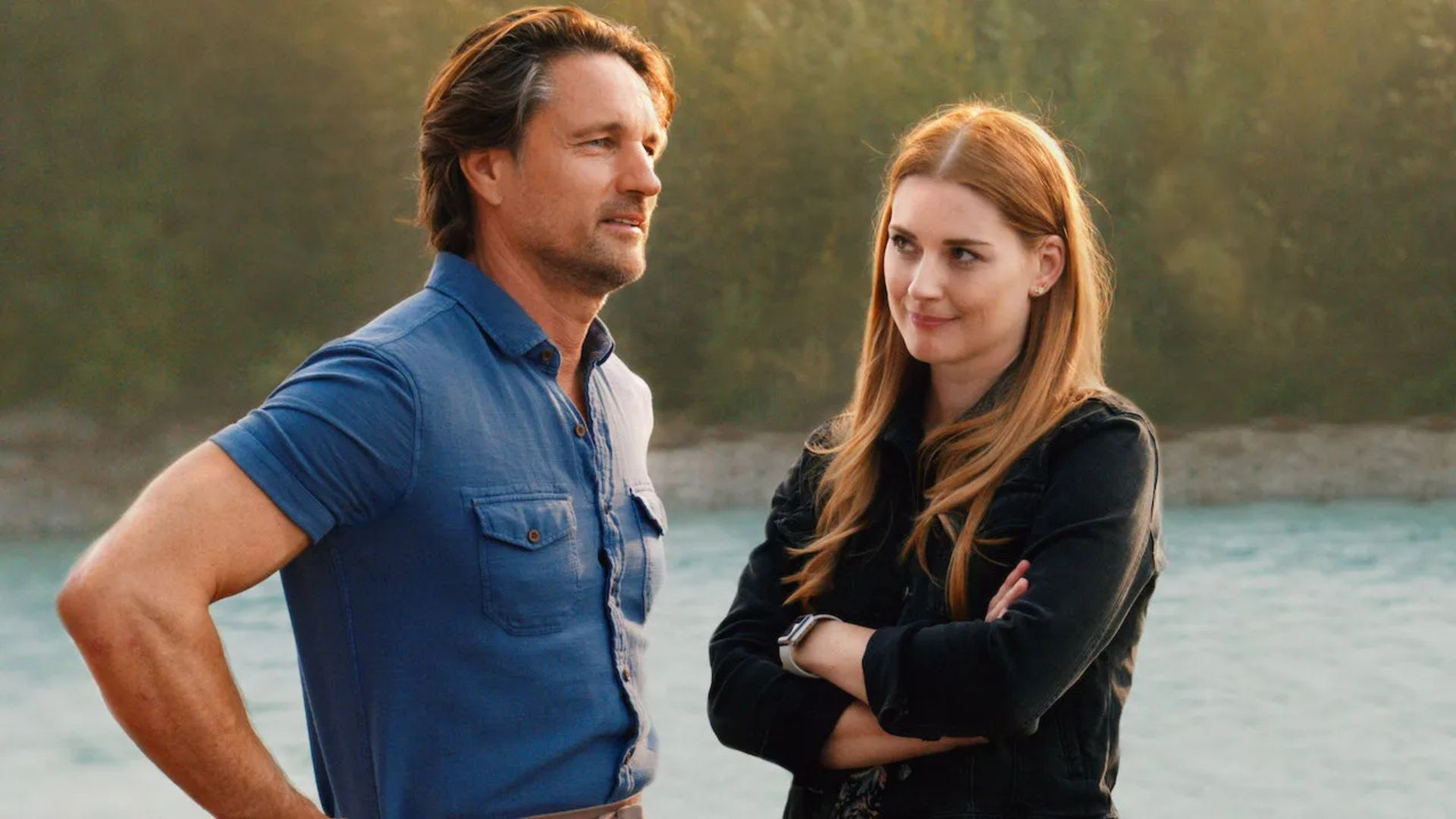
In a twist that few industry insiders predicted but fans of comfort TV are celebrating, Netflix has quietly renewed Virgin River for Season 8 — extending the life of its long-running drama well beyond most of the streamer’s original series. While the news delighted a loyal fanbase, it has also reignited criticism from viewers and creators alike who say the platform is increasingly choosing safe, sentimental content over bold, groundbreaking storytelling.
The Unlikely Reign of Virgin River
Launched in 2019, Virgin River was never intended to dominate the cultural conversation. Based on Robyn Carr’s novel series, the show centers on nurse practitioner Mel Monroe (Alexandra Breckenridge) and her journey of healing in a picturesque Northern California town. Over the years, the series has introduced a rotating cast of characters facing love, loss, medical emergencies, and small-town politics — all in the gentle, emotionally grounded style that has become the show’s signature.
There are no dragons. No alternate timelines. No brutal cliffhangers (well, rarely). Instead, what Virgin River offers is emotional safety — and in an age of content overwhelm, that’s proven to be a powerful currency.
Still, as Netflix axes more ambitious shows with diverse casts and genre-bending potential, the decision to stick with Virgin River is sparking a deeper industry reckoning.
Comfort Is King — But Critics Are Concerned
“Virgin River has become the Gilmore Girls of streaming,” one critic mused. “It’s easy to watch, easy to love, and just as easy to ignore if you’re not in the mood. But its success says a lot about where Netflix is headed — and it’s not forward.”
Indeed, while Virgin River moves quietly toward its eighth season, the platform has pulled the plug on shows that were anything but quiet:
-
1899, a mind-bending sci-fi drama from the creators of Dark
-
Warrior Nun, a cult fantasy hit with strong LGBTQ+ representation
-
First Kill, a young adult vampire series with queer leads
-
The Midnight Club, from horror auteur Mike Flanagan
Each of these shows built fervent online communities, racked up social media campaigns, and brought much-needed representation to Netflix’s catalog. But according to the streamer’s opaque metrics, they “didn’t perform.”
And so, they’re gone — while Virgin River, with its understated aesthetic and low-stakes emotional arcs, soldiers on.
A Fandom That Doesn’t Quit
To its credit, Virgin River boasts a fanbase most networks would kill for. Its viewers aren’t casual streamers; they’re devoted, invested, and vocal — not in viral memes, but in Facebook groups, Reddit threads, and good old-fashioned Netflix binges. The show’s core audience returns season after season not because it reinvents itself, but because it doesn’t.
“It’s my comfort show,” says longtime viewer Allison M., 46. “After a long day, I just want to check in with Mel and Jack. That’s all I need. That’s what keeps me paying for Netflix.”
And Netflix knows it. In a streaming landscape that’s becoming harder to predict, reliability matters. Unlike effects-heavy epics or polarizing political dramas, Virgin River is budget-friendly, risk-averse, and relentlessly consistent.
The Cost of Playing It Safe
But that consistency comes with a price — and it’s increasingly being paid by the creators and communities behind newer, more diverse projects.
“When you cancel shows with queer leads or POC-driven narratives after one season, what you’re really saying is that those stories are disposable,” wrote one viewer on X (formerly Twitter). “Meanwhile, Virgin River gets eight seasons for playing it safe? That’s a bad look, Netflix.”
Others question whether Virgin River’s longevity is a symptom of a broader shift in streaming: one where metrics matter more than meaning, and niche appeal isn’t enough unless it goes viral immediately.
Nostalgia Isn’t Just for Reruns
If Netflix’s strategy seems familiar, it should. It mirrors what broadcast networks did for decades — leaning into what works and ditching what doesn’t, fast. But in an era where the promise of streaming was once creative freedom and risk-taking, some feel betrayed.
And yet, there’s another truth to consider: audiences are tired. After years of pandemics, politics, and nonstop algorithmic stimulation, people are returning to stories that feel like home. Virgin River, with its sleepy towns, slow-burning romances, and soft lighting, is the ultimate narrative escape hatch.
Is it pushing boundaries? No. But it’s pulling viewers — and subscriptions — back in.
Where Does Netflix Go From Here?
With Season 8 officially in development, Virgin River now becomes one of Netflix’s longest-running scripted originals. That’s a massive feat in a time when most shows are lucky to survive past Season 3.
But what does that mean for Netflix’s legacy? If comfort TV is the future, is there still room for disruption? Will innovation be the next casualty?
For fans of Virgin River, the answer is simple: let the show run forever. For everyone else, it’s more complicated — and more urgent. Because the future of streaming may hinge not just on what gets renewed, but on what never gets the chance.

Love it or loathe it, Virgin River is no longer just a cozy drama. It’s a case study.
And it’s forcing us to ask: In the race between comfort and creativity, which do we really want to win?
Streaming. Stability. Sacrifice.
Virgin River’s eighth season is coming — and the conversation it’s sparking might just matter more than the show itself.